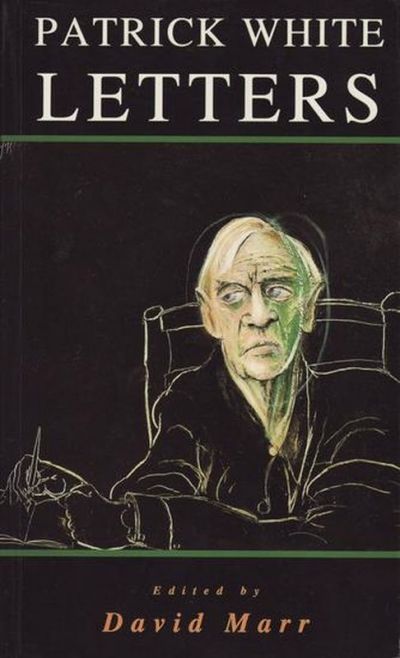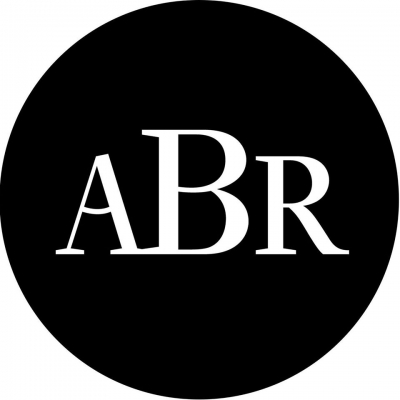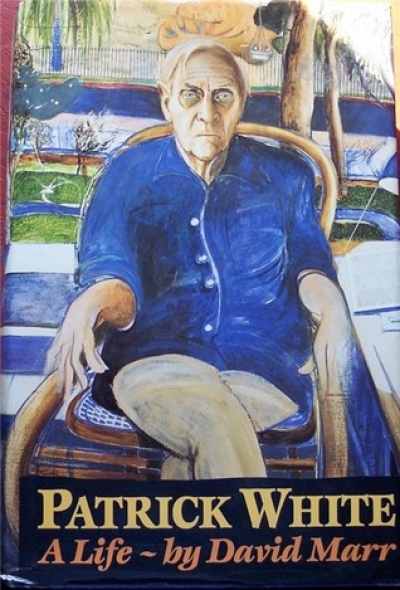Accessibility Tools
- Content scaling 100%
- Font size 100%
- Line height 100%
- Letter spacing 100%
Patrick White
Patrick White had rather more success than Henry James with his plays – though that is not saying much. James’s attempt in the 1890s to conquer the London stage was a theatrical and personal disaster, but has, remarkably, provoked two recent novels, Colm Tóibín’s The Master and David Lodge’s Author, Author. The plays were no great loss, and it was to our ultimate benefit that James returned his creative energy to the novel.
... (read more)Some years ago the poet John Forbes was addressing himself to that national monument, Les Murray, and he had occasion to remark, ‘The trouble with vernacular republics is that they presuppose that the kingdom of correct usage is elsewhere.’ It was, I suppose, designed to highlight the fact that the homespun qualities of the Bard from Bunyah were dependent on an awareness of the metropolitan style Murray willed himself to transgress and that there was an inverted dandiness, if not a pedantry, in all that Boeotian ballyhoo. It does not seem to me a remotely fair remark but it is a good epigram notwithstanding and it takes on a range of meanings depending on what light you look at it in. Presumably Forbes thought, or feigned to think, that Murray’s poetic demotic was a variation on that Colonial Strut which is, in fact, a version of the Cultural Cringe. In any case his words came into my head the other day when I was reading Simon During’s new Oxford monograph about Patrick White.
... (read more)Collected Plays, Volume II by Patrick White & Collected Plays, Volume II by David Williamson
Publishers are like invisible ink. Their imprint is in the mysterious appearance of books on shelves. This explains their obsession with crime novels.
To some authors they appear as good fairies, to others the Brothers Grimm. Publishers can be blamed for pages that fall out (Look ma, a self-exploding paperback!), for a book’s non-appearance at a country town called Ulmere. For appearing too early or too late for review. For a book being reviewed badly, and thus its non-appearance – in shops, newspapers and prized shortlistings.
As an author, it’s good therapy to blame someone and there’s nothing more cleansing than to blame a publisher. I know, because I’ve done it myself. A literary absolution feels good the whole day through.
... (read more)'Patrick White and Australian Writing: Towards a new Asian Pacific literature' by Zhu Jiongqiang
Professor Zhu Jiongqiang works in the Department of Foreign Languages at Hangzhou University in the People’s Republic of China. A specialist in Australian literature, he has translated Patrick White’s The Eye of the Storm into Chinese, and has written extensively on Australian writing in both Chinese and English. In this translated extract from a discussion about the history and current trends in Australian literature, Professor Zhu places Patrick White in the context of literary schools. He finishes by suggesting that new styles of writing are emerging from the kinds of writing introduced by White and that a new Asian Pacific culture – the culture of Australia – is coming into prominence.
From the end of the Second World War, the most illustrious and noteworthy writer in Australia was Patrick White. Someone said that contemporary Australian literature is Patrick White and there is some truth in this remark.
... (read more)If before the 1890s, books had been judged by their dust jackets, most would have been considered uniformly dull, or indecently attired. Dust jackets appeared first in 1833 to protect the recently introduced cloth casings as they made their progress from printery to publisher’s warehouse, on to booksellers and then to library shelves, at which stage the wrappings were usually thrown away. Those earliest dust jackets could be blank or printed with the title as well as the names of the author and publisher on the front, or notices about other volumes on the back panel.
... (read more)I met Patrick White first in 1965. Reduced to 1.9s.6d, he was lying, in an American edition of Riders in the Chariot, on a sale table at Finney Isles department store in Brisbane. So much has changed. Today, we would talk of remainders; the shop has been taken over by David Jones which has in turn been taken over by Adelaide Steamship which later bought up Grace Bros; prices are now given in dollar and cents.
... (read more)






